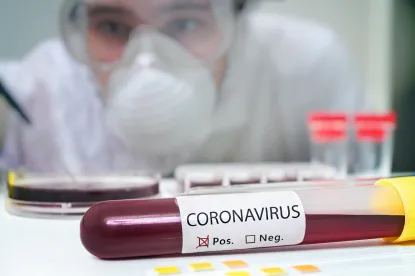On April 23, 2020, the EEOC updated its Technical Assistance Questions and Answers, “What You Should Know About COVID-19 and the ADA, the Rehabilitation Act, and Other EEO Laws,” which Hunton previously posted about here, to address questions that many employers are struggling with related to employee COVID-19 testing. The EEOC’s new guidance confirms that employers are authorized to administer COVID-19 tests before allowing employees to enter the workplace, and that doing so does not violate the Americans with Disabilities Act (ADA).
The ADA requires that any mandatory medical test of employees be “job related and consistent with business necessity.” Under the current circumstances of the COVID-19 pandemic, an employee with the virus entering the workplace will pose a direct threat to the health of others, such that employers taking steps to determine if an employee entering the workplace has COVID-19 is “consistent with business necessity” and does not violate the ADA.
The results of an employee COVID-19 test is the type of medical information that must be kept confidential under the ADA and maintained separately from the employee’s personnel file.
The EEOC advises employers to review guidance from the U.S. Food and Drug Administration, CDC or other public health authorities regarding what options are considered to be safe and accurate testing. The EEOC guidance also reiterates that employers — even those that choose to implement mandatory COVID-19 testing — should still require that employees observe infection control practices (such as social distancing, regular handwashing, and other measures) in the workplace to prevent transmission of COVID-19. Importantly, employers should remember that accurate testing only reveals if the virus is currently present and has no indication of whether an employee will acquire the virus at a later time.






 />i
/>i

